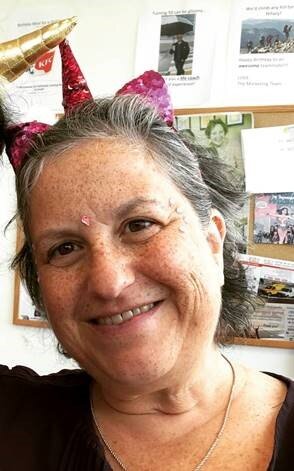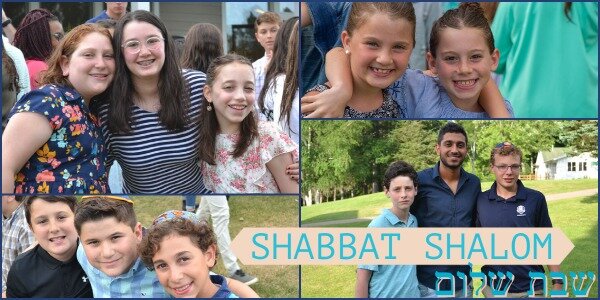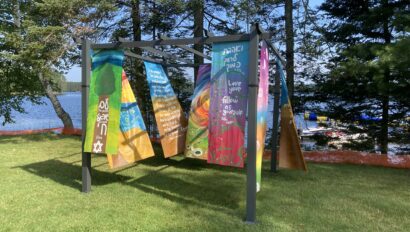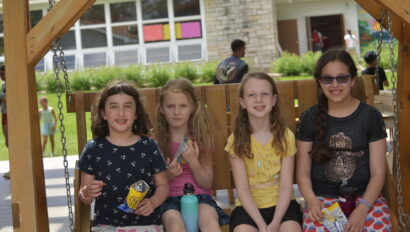Hillary Gordon arrived at camp in 1980 from Louisville, Ky. Hillary was a camper (Nivo ‘84) and worked for many years as a counselor, teacher, rosh eidah and assistant director. She also spent two summers working at Ramah Day Camp in Chicagoland. Hillary graduated from the University of Florida and received her Master’s Degree in Talmud from American Jewish University. She made aliyah with her family in 2009 and currently lives in Modiin, with her husband, Alex Smoler, and their three former rishonimers and campers – Avi, Penina and Yael. Avi is attending Tel Aviv University after serving in the Israeli army, Penina currently serves in the Israeli Air Force and Yael is participating in sherut leumi. Currently, Hillary works at a high-tech company as Content and Social Media Manager.
At the Crossroads: Reflections on Parashat Lech Lecha
by Hillary Gordon
At the beginning of our parashah God asks Abraham to go on a journey to a place unknown. We don’t know anything about Abraham and his wife Sarah except for their lineage. When we meet them, Abraham is 75 years old, a whole life lived. When Abraham is called by God, it is in Haran which means “crossroads.” Symbolically then, Abraham is at a crossroads in his life, he can go this way or that. He can go towards the unknown – albeit with great promises – or stay with the familiar. The parashah is also a crossroads for the narrative of the Torah itself. The Torah now moves from “Myth” to history, in particular, the history of the nation of Israel. Bible scholar W. Gunther Plaut writes that the story of the nation of Israel is one of wandering, and notes that “Time and again [Abraham’s] descendants will wander across the earth, along the highways of history.”
For Plaut, the Torah’s silence on Abraham’s first 75 years is a literary conceit meant to call attention to what happens to him, his family, and descendants after he first encounters God. What happens before is purposefully left out.
For the rabbis of the Midrash and other commentators, however, this lack of background information about Abraham is an inviting opportunity to fill in the blanks. The Midrash famously tells stories of young Abraham’s encounters with idols, idol worshippers and his attempts to promote and practice monotheism.
The Torah asks us to believe in Abraham because God has chosen him and his descendants. God promises “I will make of you a great nation, and I will bless you; I will make your name great, and you shall be a blessing” (Genesis 12:2-3). One of the ways that Abraham and God enter into an eternal covenant is through a ritual called brit bein habetarim (“the covenant among the pieces”; Genesis 15).
Much of the discussion on this b’rit (covenant) has focused on the bizarre “ceremony” that God asks of Abraham. God requests a “three year old heifer, a three year old she-goat, a three year old ram, a turtledove and a young bird.” Abraham then “brought Him all these and cut them in two, placing each half opposite of the other; but he did not cut up the bird”. Certainly for us this seems really strange and most likely it was for Abraham as well. Abraham does God’s bidding without question as he did with “going forth” and will again later with the binding of Isaac.
What struck me this time reading about this brit bein habetarim was the feeling of oddness Abraham must have felt.
A feeling of oddness is something that all of us can sympathize with today. We look around at a world where the rules are changing. For Abraham, his world was also going to be turned upside down by a promise of innumerable heirs, slavery and then a promised land. It was a future he probably never imagined. We are also dealing with a possible future we never imagined. Every day, we are Abraham and Sarah stepping foot on an unknown journey from Haran, the crossroads.
In a midrash (Genesis Rabbah 39:1), Rabbi Isaac tells the parable of a man who is traveling and comes upon a mansion, or birah in Hebrew. The mansion is described as a “birah doleket.” Translators disagree on the meaning of the word doleket, which is from the same root as “l’hadlik” (to light) in the blessing over the candles on Friday night. Some translate it as “of light” or “lit up,” while others understand it to be “on fire.” Perhaps, in the midrash’s imagination, Abraham came upon a lit up mansion, or perhaps one that was on fire.
The parable continues to explain that the traveler wonders who owns this birah doleket and why no one is taking care of it. In other words, Abraham looks at the world and ponders it, wondering who its owner is. God answers him “I am the world’s owner.”
Looking around right now, it is easy to see the world as a mansion on fire with no one taking responsibility. Every day we take steps into the unknown like Abraham and Sarah did, not knowing where they will lead us.
Life is lived in the spaces between – between the crossroads and the Promised Land, between our past and our future. And our outlook on life dictates our experience of it: Do we see the mansion lit up beautifully? Or is it on fire? What is most important, indeed, is not how we see the mansion, but what we do. Abraham engages in the world, joining with God in a partnership of which we are all beneficiaries.
The fire can be doused; the light can be shared. We must be the caretakers of the world.







